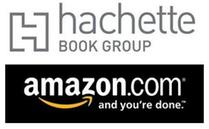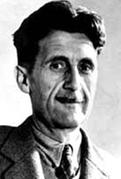
Perhaps the most striking element of the letter was the sense it gave of Amazon's world view: it apparently assumed that the letter from Authors United that appeared in a two-page spread in yesterday's New York Times and was signed by more than 900 authors was orchestrated by Hachette--and thus required mirror action by Amazon. Since the Authors United ad included Jeff Bezos's e-mail--noting that Bezos "says he genuinely welcomes hearing from his customers and claims to read all e-mails at that account"--Amazon gave out Michael Pietsch's e-mail. (A letter that Pietsch is sending to writers is reproduced below.) The letter also became the main posting on the home page of a new entity called Readers United, a domain name bought by Amazon about 10 days ago.
Io9.com said the letter "reads like a screed from a sincere (and sincerely crazy) ex boyfriend posting on some weird listserv." Stephen Hanselman, founder and head of LevelFiveMedia, wrote: "While I agree on book pricing in general, that Amazon e-mail in my inbox this morning read like a millennial's all-nighter and was a touch insane." The Wall Street Journal quoted Ron Martinez, who has published e-books through Amazon, as saying of the letter: "It's overtly divisive, pitting authors against one another. It's astonishingly poor form to publish an executive's e-mail."
 |
|
| George Orwell | |
Early on Saturday morning, the New York Times quickly pointed out that Amazon had misunderstood--or purposely distorted--the Orwell quotation. (We're not sure which explanation is worse: deceit or an inability to recognize irony or humor.)
Amazon had written: "The famous author George Orwell came out publicly and said about the new paperback format, if 'publishers had any sense, they would combine against them and suppress them.' Yes, George Orwell was suggesting collusion." (Amazon likes to remind fans regularly that Hachette was one of five publishers along with Apple prosecuted by the Justice Department in 2012 for collusion involving the agency model for e-book pricing.)
The Times countered: "Here is what the writer said in the New English Weekly on March 5, 1936: 'The Penguin Books are splendid value for sixpence, so splendid that if the other publishers had any sense they would combine against them and suppress them.'
"Get it? He liked them."
The Times also noted that Orwell went on to take a different tack toward pricing from Amazon's, writing, "It is of course a great mistake to imagine that cheap books are good for the book trade. Actually it is just the other way about.... The cheaper books become, the less money is spent on books."
(At his blog, Mike Shatzkin has a very nice recounting of the paperback revolution and how it gradually remade the industry.)
The logic of a letter asking Kindle Direct Publishing authors to write to the head of Hachette asking for lower priced e-books was another bizarre aspect of the Amazon letter/post on Friday. Why would Amazon's Kindle authors, who are not published by Hachette, care about Hachette's pricing structure? If anything, wouldn't they prefer titles from the bigger houses to reflect the costs of having professional editing, publicity, sales, marketing and distribution and be more expensive, thereby making their own titles stand out because of their lower prices?
And in a typical bit of poor timing, another Amazon spat with a supplier became public over the weekend: in a dispute over terms with Disney that resembles the battle with Time Warner that took place in June, Amazon is not allowing preorders of upcoming Disney releases. In a story called "Amazon Takes the Muppets Off the Shelf," the New York Times wrote, "Amazon customers are unable to buy DVDs or Blu-rays of movies like Muppets Most Wanted that are coming out in the next few months. Instead, they can sign up to be notified when the movies become available or preorder the Amazon Instant Video.
"In at least one case, there seems to be no product page at all for the physical copy of the movie. Captain America: The Winter Soldier is available for preorder as an Amazon Instant Video, but neither a Blu-ray disc nor a DVD is offered."
The Times noted that preorders for upcoming releases are an important early gauge of demand for Hollywood studios, making this an even more potent weapon for Amazon than removing preorder buttons for forthcoming books.
Amazon's awkwardly written, tin-eared posts and e-mails make one wonder why the company apparently jettisoned what was a highly experienced, effective public relations staff years ago. Paul Ford, tweeting as @ftrain, had the best comment on that aspect of Amazon: "To be fair, I respect Amazon for sticking to their guns and spending only $9.99 for a PR firm."

